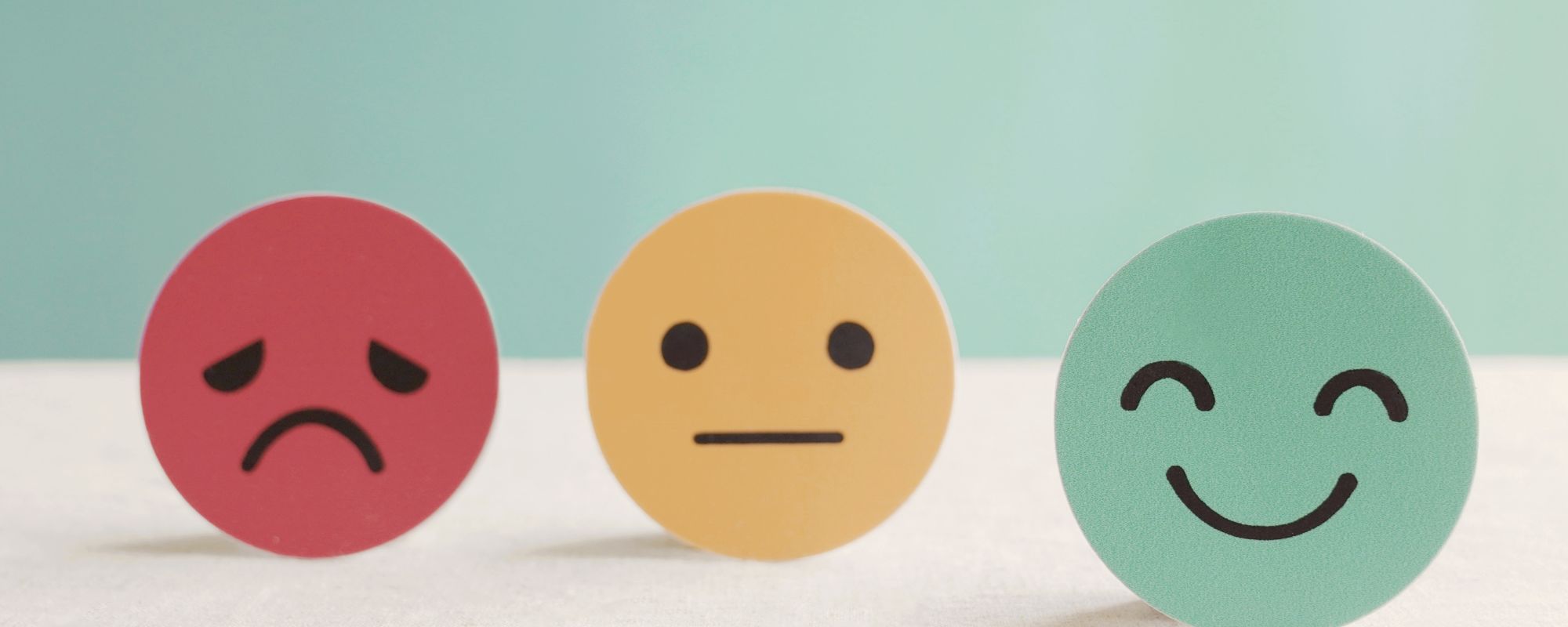College can be one of the most transitional, transformative stages of life. A rite of passage in discovering your independence and personal and academic growth, moving into higher education is like standing at a crossroads — abundant educational and future career aspirations in every direction you turn, where the sky, seemingly, is the limit.
However, these potential opportunities can bring challenges that can affect students ‘ mental health. You might be just starting undergrad and overwhelmed with living on campus, meeting new people, and acclimating to a heavy courseload unlike anything you had in high school. Or you might be a long-time student pursuing a graduate degree and worried about looming deadlines and high expectations to follow through and succeed.
You’re not alone if you identify with these feelings; studies show that more than 60% of college students potentially experienced at least one mental health issue stemming from school, according to the American Psychological Association (APA).
The APA cites another survey where nearly three-fourths of students indicated moderate-to-major psychological distress — insights illustrating the inextricable link between college and mental health.
What can you do to nurture your mental health so your well-being, self-esteem, and academic performance can thrive? Keep reading for some tips.
How Does School Affect Mental Health?
College is a huge time of adjustment. Even though it can — and should be — an exciting time, offering opportunities for learning, self-discovery, and finding yourself as a student and young adult, there are new stressors accompanying it. Transitioning from a structured high school environment to a more independent collegiate atmosphere may conjure uncertainty about the future and intensify feelings of anxiety unlike anything you’ve felt before.
A 2023 study from Gallup and the Lumina Foundation discovered that nearly three in 10 adult college students (40% between the ages of 18 to 24) claim that emotional stress and personal mental health matters are key factors in why they remain unenrolled in classes. Apart from other reasons, they remain the two biggest considerations in halting their coursework within the last six months.
The survey further indicated that 41% of current college students admitted staying enrolled remained difficult and that 44% of associate degree and 36% of bachelor’s degree students considered stopping coursework for at least a semester. Among those students, 55% and 47% further cited emotional stress and mental health, respectively, as determining reasons.
What explains these concerning school and mental health statistics for students who are on the brink of dropping out?
Academic Pressure
“Academic pressure together with stressors typical of starting and attending college may precipitate the first onset of mental health and substance use problems or an exacerbation of symptoms,” states a study published through the National Institutes of Health.
Another study indicates that as many as 87% of college students cited education as their main source of stress. “College students are exposed to novel academic stressors, such as an extensive academic course load, substantial studying, time management (and) classroom competition”
This weight of expectations — either self-imposed or external (such as from professors or parents) — can lead to anxiety and burnout that may result in falling behind academically.
Social Challenges
College isn’t — and shouldn’t — only be about academics, but the pressure to get good grades also gets mirrored in a need to fit in socially on campus. Students ‘ mental health is closely linked to feelings of belonging and acceptance, which is something we all deserve.
Going from four years of high school and the friendships you made can leave you feeling disconnected when starting again in a new school, with new people and new dynamics. Shyness, introversion, or awkwardness around others can make earning new friends a challenge and invoke feelings of loneliness. Even if you’ve forged some close friendships, there’s additional pressure to participate, whether it’s through extracurricular activities, getting involved in clubs, or joining a fraternity or sorority. This environment of constant social comparison might intensify concerns about your self-worth.
In addition, all of this can prove more difficult being away from home and the social network you’ve had up until now.
New Sleep and Eating Habits
Our bodies tend to flourish through habits like a balanced diet and a regular sleep schedule. But your routine in college might look very different. For students and mental health, pulling all-nighters, skipping meals due to back-to-back classes, late-night takeout and inconsistent sleep can throw off everything from your circadian rhythms, your cognitive functioning and your mental and emotional clarity — regardless of if you’re a new undergrad or seasoned grad student.
“Diet, exercise and sleep often fall low on the priority list,” says psychologist Susan Albers, in a Cleveland Clinic report. “Students feel like they don’t have time for them. But those three things are the cornerstones of mental health. It’s like pulling the rug out from underneath someone who’s already struggling to stay balanced.”
Financial Stress
Money becomes one of the biggest negative factors in how school affects mental health. The Gallup/Lumina poll reveals that financial strain is the number one reason many students remain unenrolled (either foregoing college or dropping out) — 55% are concerned about affording tuition and fees, and 45% are worried about inflation’s effect on cost friendliness. “Nobody should have to decide between paying rent, food, gasoline, groceries and paying for education,” one unenrolled student is quoted.
Indeed, even if you’ve received grants or financial aid, they may not be enough to cover the entire cost of tuition, and student loans, with interest, can become costly. Without them, the financial responsibilities of students can exacerbate mental health since tuition, accommodations, and daily living expenses can cause significant worry about managing your finances.
Many students end up juggling part-time jobs to pay their way through college while struggling to keep up with schoolwork. The combination of financial strain/stress with spreading oneself too thin can impact your ability to truly devote focus on academics, self-care, and personal relationships.
Experimentation with Substance Use
On-campus parties and dorm hangouts open opportunities to experiment with substances, from alcohol to other drugs. Occasional social drinking or use might not become problematic if you’re responsible, but substance use can quickly turn to abuse, especially when some students may turn to substances for self-medication to cope with stress, depression, or anxiety.
Unfortunately, even if excess substance use doesn’t develop into abuse, it can still trigger, worsen, or exacerbate student mental health issues. Substance abuse, notes the Cleveland Clinic, makes tangible changes in the brain that can cause someone to develop a mental illness, and with repeated use, the brain’s reward centers are overstimulated, causing you to want to keep taking a substance, a clear pathway to addiction.
According to a recent National Survey on Drug Use and Health, substance abuse is linked not only to poor mental health in school but also to long-term health problems. In the study of college students aged 18 to 22:
- Nearly 6 million smoked cigarettes within the last month
- 12 million drank alcohol (with 7.8 million binge drinking)
- 4.5 million students used cannabis
- 299,000 experimented with cocaine
Looking for quality treatment for substance abuse and mental health that’s also affordable? Aliya Health Group's treatment facilities accept most major insurance providers. Get a free insurance benefits check now!
Check Your CoverageWhat Are the Most Common Mental Health Issues Students Struggle With?
Looking deeper into the APA’s assertion that six out of 10 college students experience mental health issues (a 50% increase in just over the last decade), how does school affect mental health specifically? The National Education Foundation (NEA) cites the Healthy Minds survey:
- 44% of students reported suffering from depression
- 37% said they experienced anxiety
- 15% admitted they considered suicide
The NEA, citing another study, also mentions that close to two-thirds of college students reported feeling deeply sad, with one-third claiming they felt so depressed that they could not function.
What Are the Signs and Symptoms of Poor Mental Health?
Though symptoms may vary depending on the nature of the condition, there are several telltale signs that poor mental health share, notes the Mayo Clinic:
- Persistent feelings of sadness, hopelessness, or despair
- Extreme mood swings or irritability
- Difficulty concentrating or making decisions
- Changes in eating or sleeping habits
- Social withdrawal or isolation
- Loss of interest in activities you once enjoyed
- Increased reliance on alcohol or drugs to cope
- Thoughts of self-harm or suicide
Get confidential help from our addiction and mental health treatment facilities located across the United States. Call to join one of our quality programs today!
Speak With Our Admissions TeamTips for Maintaining Your Mental Health in College
Taking charge of your mental health in school means being proactive about your well-being and developing some healthy habits.
Building a Routine
College life can be unpredictable, and apart from your class schedule, having a routine often becomes the exception, not the norm. Think of times when you had more consistency in your day-to-day routine, and take the steps to rebuild it. Rather than cramming in studying or completing homework at the last minute, block out a dedicated time for it. Eat meals at the same time each day (and don’t skip any!). And most importantly, set a non-negotiable, lights-out bedtime, and aim for at least seven hours of sleep each night.
Once you’ve built out a workable routine, try to schedule classes for the following semester around these times. If that’s not possible, negotiate with yourself. For instance, if two prerequisite courses are only available on two weekday evenings when you’re normally in your dorm studying, make up the time in the library on Saturday or Sunday.
Practicing Self-Care
“When we practice self-care, we do so with the intention of taking care of our mind, body and soul by engaging in activities that bring us joy and reduce stress levels,” says the Mental Health Coalition (MHC). “Practicing self-care helps us value and love ourselves, ultimately resulting in a more full and vibrant life”.
How can you put self-care into practice and nurture yourself? Listen to what your body and mind need. Start with simple practices like journaling your thoughts when you can. What are you feeling at this moment? Have you noticed patterns when you’re feeling down and sad, and what brings you up? What are you most grateful for? Jot them down. See if yoga or meditation is offered on campus, or just try simple, deep breathing for three to five minutes or taking a walk in nature when you feel stressed.
Using Campus Resources and Groups
Your campus likely offers mental health resources for students. Don’t hesitate to take advantage of counseling services, student support groups, and wellness programs. Check your school’s website or check in at the student center to see what’s offered. Talk therapy sessions are often coordinated through the psychology department or a counseling center.
The MHC encourages reaching out to others, like confiding in a professor you trust if you feel your academic performance is suffering due to mental health; your dorm’s resident assistant, usually an upperclassman who can relate to your experiences; or friends and peers as a shoulder to lean on. “They may be going through something similar,” notes the MHC.
Avoid Drugs and Alcohol
Nearly 60% of college students say that they’ve experienced peer pressure to drink. It can be hard to say no when you want to fit in and make friends. It can be tempting to turn to substances to cope with the stress of college life. But alcohol and drugs aren’t a sustainable solution — they may initially take the edge off, but think of how getting hooked on them can worsen your mental health and make your schoolwork suffer more.
Instead, focus on some of the healthier coping mechanisms above — from better habits to finding someone to talk to — that replace the empty benefits that drinking or drugs offer. At the least, make a compromise with yourself and have a drink only on special occasions, like after you’ve aced an exam, completed midterms, or during spring break.
Where to Find Professional Mental Health Treatment
Your school environment has numerous options meant to address student mental health — it’s a place where everyone is meant to learn, grow, thrive, and succeed. But it’s not the only option.
If you feel your academics, personal life, and mental health have been suffering (or a loved one’s), consider pursuing mental health treatment at a dedicated rehab facility. Even attending therapy on an occasional outpatient basis (where you can go home after therapy is finished) is a positive, proactive step in the right direction with your mental health and well-being in mind.
If you have questions about student mental health issues and treatment, don’t hesitate to contact us today.
- https://www.apa.org/monitor/2022/10/mental-health-campus-care
- https://www.luminafoundation.org/wp-content/uploads/2023/05/State-of-Higher-Education-2023.pdf
- https://health.clevelandclinic.org/mental-health-in-college-students
- https://www.frontiersin.org/journals/psychology/articles/10.3389/fpsyg.2022.886344/full
- https://www.psychiatrictimes.com/view/substance-misuse-in-college-students
- https://www.nea.org/nea-today/all-news-articles/mental-health-crisis-college-campuses
- https://www.mayoclinic.org/diseases-conditions/mental-illness/symptoms-causes/syc-20374968
- https://www.thementalhealthcoalition.org/college-mental-health-toolkit/
- https://jedfoundation.org/resource/understanding-peer-pressure-in-college/
















